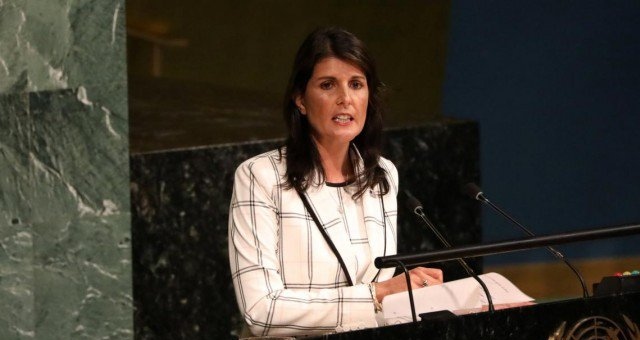US quits UN Human Rights Council
June 20, 2018 | Expert Insights

The US has decided to, for the second time, quit the UN Human Rights Council.
The Bush administration too had decided to boycott the council when it was created in 2006, for many of the same reasons now cited by the Trump Administration.
Background
The Human Rights Council is an inter-governmental body within the United Nations system made up of 47 States responsible for the promotion and protection of all human rights around the globe and for addressing situations of human rights violations and making recommendations on them.
The Council was created by the United Nations General Assembly on 15 March 2006 by resolution 60/251. Its first session took place from 19 to 30 June 2006. The Council is made of Member States, which are elected by the majority of members of the General Assembly of the United Nations through direct and secret ballot. Vojislav Šuc, who has been serving as Permanent Representative of Slovenia to the United Nations Office at Geneva since January 2014, is currently the President of the Council. India is not a member of the Council as its term expired in 2017.
Analysis
US Ambassador to the United Nations, Nikki Haley, announced that the United States was withdrawing from the UN Human Rights Council, accusing the body of bias against US ally Israel and a failure to hold human rights abusers accountable. The body is "hypocritical and self-serving" and "makes a mockery of human rights", said Nikki Haley.
The move, which the Trump administration has threatened for months, came down one day after the Office of the UN High Commissioner for Human Rights slammed the separation of children from their parents at the US-Mexico border as "unconscionable."
Ms. Haley announced the US's intention to quit the council at a joint news conference with Secretary of State Mike Pompeo. She referred to the council as a "cesspool of political bias" but stressed: "I want to make it crystal clear that this step is not a retreat from our human rights commitments."
Ms. Haley had last year accused the Council of "chronic anti-Israel bias" and said the US was reviewing its membership. Haley, on her part, argued that the US had spent a year in pursuit of reforms while the council’s flaws deepened. She pointed to the election of the Democratic Republic of Congo to council membership in the past year, despite the US reform campaign, as proof that the body could not be fixed. She also noted that the council had failed to hold a single session on Venezuela, which is a council member, or Iran, despite its ruthless crushing of opposition demonstrations.
UN Secretary-General António Guterres, in a statement released through his spokesman, said he would have "much preferred" the US to remain in the council.
The UN human rights commissioner, Zeid Ra'ad Al Hussein, called the US withdrawal "disappointing, if not really surprising, news".
The UK foreign secretary, Boris Johnson, said the US decision to leave was “regrettable”.
“The Trump administration’s withdrawal is a sad reflection of its one-dimensional human rights policy: defending Israeli abuses from criticism takes precedence above all else,” Kenneth Roth, the executive director of Human Rights Watch, said.
The United States has always had a conflicting relationship with the UN Human Rights Council. The Bush Administration decided to boycott the council when it was created in 2006 for many of the same reasons cited by the Trump administration. In 2009, the United States re-joined the council under the Obama administration.
Mr. Pompeo on his part called the council "a poor defender of human rights". "Worse than that, the Human Rights Council has become an exercise in shameless hypocrisy with many of the world's worst human rights abuses going ignored and some of the world's most serious offenders sitting on the council itself," he added.
Many allies have tried to convince the United States to remain in the council. Even many who agree with Washington's long-standing criticisms of the body believe the United States should actively work to reform it from within, rather than disengaging.
Assessment
Our assessment is that the retreat by the Trump administration from international groups and agreements whose policies it considers not aligned with American interests on vital issues of trade, defense, climate, and human rights is a serious challenge to the world order. We believe that despite some shortcomings, the Human Rights Council has done excellent work, highlighting human rights abuses around the world, including the fact-finding mission on Myanmar, South Sudan, Burundi, Congo, and North Korea.
Read more - US to quit UN Human Rights Council








Comments